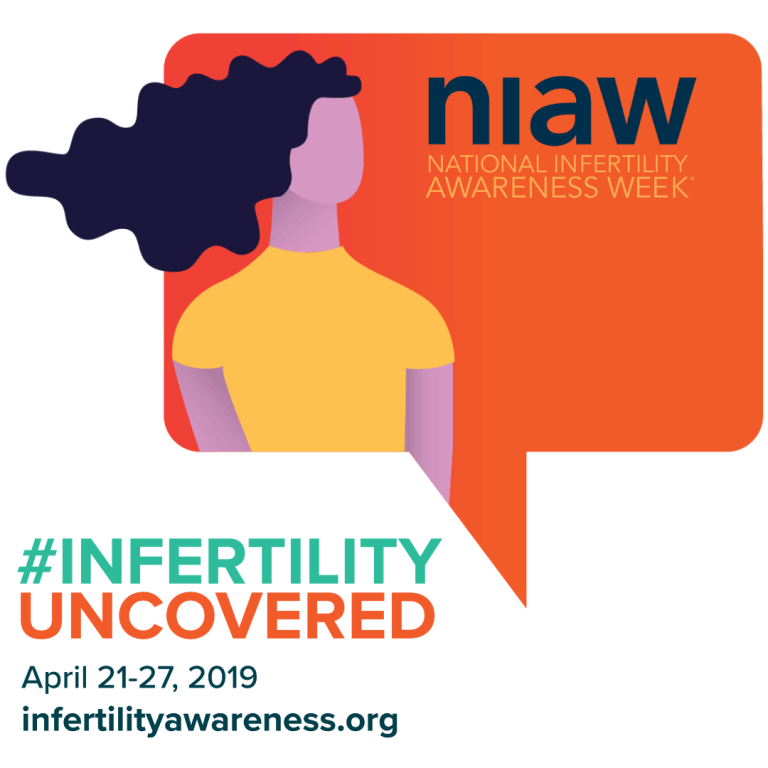
National Infertility Awareness Week is April 21-29 and is a project of RESOLVE, The National Infertility Association. Infertility is generally defined as being unable to become pregnant after a year of trying or being unable to carry a pregnancy to term. According to The American Society for Reproductive Medicine, the time of unprotected intercourse without being able to conceive should be about 12 months before considering an infertility evaluation, unless medical history, age, or physical findings suggest earlier evaluation and treatment.
1 According to the Centers for Disease Control and Prevention, approximately 12 percent of women aged 15 to 44 in the United States have difficulty getting pregnant or carrying a pregnancy to term.
2 Many different medical conditions can cause infertility in both men and women. Some of these conditions may result in an inability to conceive, while others may cause recurrent pregnancy loss.
How common is pregnancy loss?
When a couple experiences a pregnancy loss, or miscarriage, they may be surprised to learn that friends or family members have experienced the same. Approximately 15% to 25% of recognized pregnancies end in a miscarriage. Although most women who experience a miscarriage have a single loss, approximately 5% of women of reproductive age experience two or more losses.3 Historically, recurrent pregnancy loss (RPL) was defined as three or more spontaneous consecutive pregnancy losses. However, the American Society of Reproductive Medicine (ASRM) and the American College of Obstetricians and Gynecologists (ACOG) currently recommend that a physical exam and testing be performed after two first-trimester pregnancy losses, whether or not they are consecutive.
3-5What causes recurrent pregnancy loss?
Approximately 60 percent of first trimester losses are due to fetal chromosome abnormalities, many of which are associated with increasing maternal age and a low chance of recurrence. In 2-5% of couples with recurrent losses, either the mother or the father carries a balanced rearrangement of their chromosomes, which can lead to an unbalanced chromosome change in the pregnancy.3 Other causes of RPL include immunologic, endocrine, and uterine abnormalities.
How can laboratory testing help with recurrent pregnancy loss?
Studies have shown that most couples would like to know the cause of their miscarriage, even if it cannot prevent a future one.
6 Diagnostic testing can often help patients and healthcare professionals find answers. Testing may be able to identify which causes of pregnancy loss are likely to recur and reveal medical issues that can be addressed.Laboratory tests that target the most common causes for RPL that impact care management include chromosome analysis (karyotyping) and microarray analysis for miscarriage tissue (products of conception), parental blood karyotyping to assess for balanced chromosome rearrangements, and maternal blood panels to assess for immunologic and endocrine abnormalities. An association between inherited thrombophilias (clotting disorders) and pregnancy loss has been suggested in the past, but according to ASRM, routine testing of women with RPL for inherited thrombophilias is not currently recommended unless there is a personal or family history.
3Quest Diagnostics has recently acquired ReproSource, a national leader in specialty fertility diagnostic services, which extends Quest’s offerings in advanced fertility diagnostics.
What type of treatment is available for recurrent pregnancy loss?
Treatment and care management depend on the results of testing performed. When a chromosome abnormality is diagnosed, genetic counseling is recommended to explain how it happened and to discuss the chance of recurrence, which depends on the type of abnormality found. Most chromosomal abnormalities are not inherited and this information may provide reassurance of a low chance for recurrence. For individuals who carry a balanced chromosome rearrangement, choices include in vitro fertilization with preimplantation genetic diagnosis, sperm or ovum donation, and/or prenatal diagnosis in a future pregnancy.Non-chromosomal conditions may have simple medical intervention. Antiphospholipid syndrome, an autoimmune disorder, can be treated with a variety of methods, such as aspirin or other anticoagulants. Endocrine problems, such as uncontrolled diabetes, elevated prolactin levels or thyroid problems, can also be treated medically.In some circumstances, couples may feel comforted learning that the diagnosed abnormality has a low recurrence risk. And in those couples where testing does not reveal a cause for their recurrent miscarriages, the chance for having a healthy pregnancy is often significant. Thus, whether or not an abnormality is identified, there is reason to be hopeful.To learn more about infertility, visit
InfertilityAwareness.org or
Resolve.org.
If you have questions about genetic testing, please contact a Quest Diagnostics Genomic Science Specialist at 1.866.GENE.INFO.References1. Infertility. https://www.asrm.org/topics/topics-index/infertility/. Accessed 3/21/19, 2019.2. Infertility FAQs.3. Medicine PCotASfR. Evaluation and treatment of recurrent pregnancy loss: a committee opinion. Fertility and Sterility. 2012;98(5):1103-1111.4. Kutteh WH. Novel Strategies for the Management of Recurrent Pregnancy Loss. Seminars in Reproductive Medicine. 2015;33(3):161-168.5. Gynecologists TACoOa. Frequently Asked Questions: Repeated Miscarriages. 2016.6. Bardos J, Hercz D, Friedenthan J, Missmer S, Williams Z. A National Survey on Public Perceptions of Miscarriage. Obstetrics and Gynecology. 2015;125(6):1313-1320.
Your Privacy Choices





